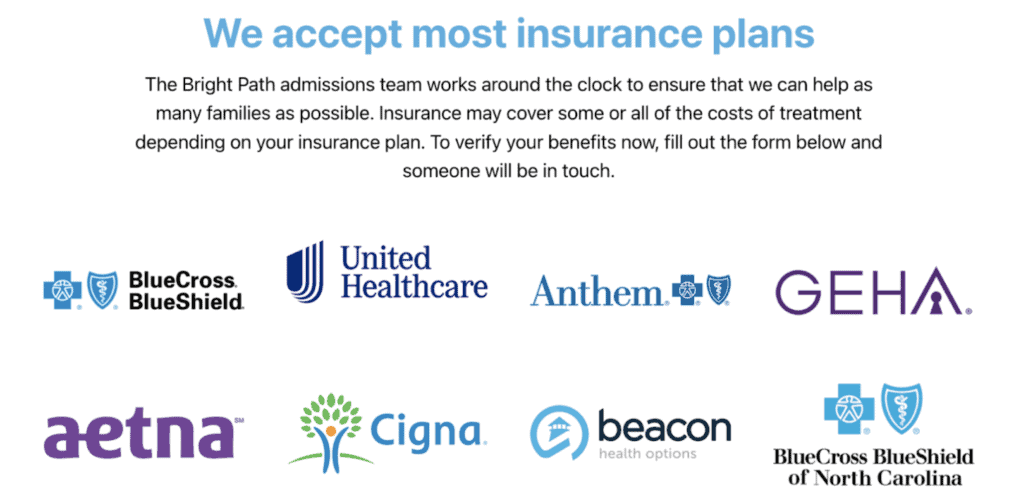
The New Year is a powerful time of renewal, reflection, and reimagination—a perfect opportunity to commit to overcoming addiction and building a healthier, brighter future. For many, addiction recovery can feel like an insurmountable task, but 2025 brings with it the promise of transformation and hope. You can embrace the possibility of long-lasting sobriety by setting realistic goals, leaning on strong support systems, and tailoring a recovery plan to your unique needs.
This guide provides insights, actionable steps, and inspiration to help you embark on a meaningful recovery journey and start overcoming addiction in 2025. Whether you’re taking your first step toward recovery or looking to strengthen your current path, this New Year offers a fresh start for positive change.
Why the New Year is a Perfect Time for Recovery
The New Year symbolizes fresh starts and clean slates, making it an ideal time to focus on recovery. This is the time when many people feel motivated to set goals and improve their lives. The collective spirit of renewal and transformation can provide the extra push needed to take the first steps toward sobriety.
The tradition of making resolutions encourages people to reflect on their past challenges and make conscious decisions to create a better future. For those struggling with addiction, this can be a pivotal moment to commit to recovery.
Use this time to:
- Reflect on your journey: Take an honest inventory of how addiction has impacted your life.
- Envision a better future: Think about what a life free from addiction could look like.
- Set intentions: Make a commitment to prioritize your health, relationships, and personal growth in 2025.
Acknowledging the opportunity for change is the first step toward making it a reality.
Find Hope and Healing: Call Us Now!
Take the first step towards a brighter future! If you or a loved one is seeking support for substance abuse, we are here to help. Call us today and let our dedicated team guide you to the right treatment options. Your path to recovery starts now!
- Connect with an expert addiction specialist 24/7/365
- Learn about treatment costs
- Arrange fast access to a treatment program
Request a Call
OR
Make a Call
Understanding the Impact of Addiction
Before embarking on your recovery journey, it’s essential to understand how addiction impacts every aspect of life. Substance use disorders can affect physical health, mental well-being, relationships, and career. Recognizing the areas of your life that need healing can help you set focused goals for the New Year.
Setting Realistic Resolutions for Recovery
Resolutions can be powerful motivators, but they need to be achievable to be effective. Here are some tips for creating resolutions that will support your recovery:
- Be Specific: Instead of saying, “I want to get sober,” set measurable goals like attending a certain number of support group meetings each week or completing a 30-day rehab program.
- Start Small: Avoid overwhelming yourself with unrealistic expectations. Begin with manageable changes, such as reducing triggers in your environment or practicing mindfulness daily.
- Track Progress: Keep a journal or use an app to monitor your achievements. Celebrating small victories can keep you motivated.
- Seek Accountability: Share your goals with trusted friends or family members who can support you along the way.
Overcoming Challenges in Early Recovery
Early recovery can be one of the most difficult phases of the journey. Recognizing potential obstacles and preparing for them can help you stay on track:
- Cravings: Understand your triggers and develop coping strategies such as deep breathing, calling a sponsor, or engaging in a distracting activity.
- Social Pressure: Avoid situations or people that encourage substance use. Practice saying no firmly but politely.
- Emotional Struggles: Recovery can bring up difficult emotions. Consider seeking professional help to navigate these feelings effectively.
The Importance of Support Systems
Recovery is not a journey you need to face alone. Building a network of support can make all the difference. Consider these options:
- Community Resources: Look for local organizations that offer addiction support, counseling, and educational workshops.
- Support Groups: Groups like Alcoholics Anonymous (AA) or Narcotics Anonymous (NA) provide a safe space to share experiences and learn from others.
- Professional Help: Therapists and addiction specialists can offer personalized guidance tailored to your needs.
- Family and Friends: Surround yourself with loved ones who understand your journey and provide encouragement.
A strong support system can help you stay accountable and offer motivation when challenges arise.
Building Healthy Habits in Recovery
Creating and maintaining healthy habits is essential for long-term success. Here are some habits to focus on:
- Regular Exercise: Physical activity not only improves your health but also reduces stress and boosts mood.
- Balanced Diet: Eating nutritious meals can improve your overall well-being and energy levels.
- Adequate Sleep: Rest is crucial for mental and emotional stability. Establish a regular sleep routine to ensure you’re well-rested.
- Daily Gratitude: Reflecting on what you’re grateful for can shift your mindset to a more positive outlook.
Mindfulness and Self-Care Strategies
Maintaining mental and emotional well-being is crucial during the recovery process. Mindfulness and self-care techniques can provide stability and resilience:
- Practice Meditation: Spend a few minutes each day focusing on your breath and calming your thoughts.
- Exercise Regularly: Physical activity releases endorphins, which can improve mood and reduce stress.
- Establish Healthy Routines: Consistent sleep, balanced nutrition, and regular exercise create a strong foundation for recovery.
- Engage in Creative Outlets: Activities like journaling, painting, or playing music can serve as positive outlets for emotions.
Incorporating these practices into your daily life can reduce the risk of relapse and enhance your overall quality of life.
Success Stories of Recovery
Inspiration can often be found in the experiences of others who have successfully overcome addiction. Here are a few stories to motivate your journey:
- John’s Story: After years of struggling with alcohol addiction, John found hope through a 12-step program and is now celebrating three years of sobriety.
- Sarah’s Journey: Sarah overcame opioid addiction with the help of a supportive family and an inpatient rehab program. Today, she mentors others in recovery.
- Michael’s Triumph: A former heroin addict, Michael turned his life around through holistic treatment and now runs a wellness center for those in recovery.
These stories remind us that recovery is possible with dedication and the right resources.
Find Hope and Healing: Call Us Now!
Take the first step towards a brighter future! If you or a loved one is seeking support for substance abuse, we are here to help. Call us today and let our dedicated team guide you to the right treatment options. Your path to recovery starts now!
- Connect with an expert addiction specialist 24/7/365
- Learn about treatment costs
- Arrange fast access to a treatment program
Request a Call
OR
Make a Call
The Role of Therapy in Recovery
Therapy is a cornerstone of many successful recovery journeys. There are several types of therapy that can aid in overcoming addiction find an effective:
- Cognitive Behavioral Therapy (CBT): Helps you identify and change negative thought patterns.
- Group Therapy: Provides a supportive environment to share experiences and learn from others.
- Family Therapy: Involves loved ones in the recovery process to rebuild trust and improve communication.
- Trauma-Informed Therapy: Addresses underlying traumas that may contribute to substance use.
Including therapy in your recovery plan can provide tools and insights to navigate challenges effectively.
Exploring Holistic Recovery Options
Holistic approaches focus on healing the mind, body, and spirit. These methods often complement traditional therapies and can include:
- Yoga and Meditation: Promote relaxation and improve mental clarity.
- Nutritional Therapy: Focus on repairing the body through a balanced diet.
- Art and Music Therapy: Offer creative outlets for expressing emotions.
- Outdoor Activities: Foster a connection with nature and reduce stress.
Holistic treatments can be an excellent addition to your recovery plan, offering a well-rounded approach to healing.
Creating a Personalized Recovery Plan
A well-thought-out recovery plan can provide structure and clarity as you work toward sobriety. Here’s how to create one:
- Assess Your Needs: Identify your specific challenges and goals. Are you dealing with co-occurring disorders? Do you need inpatient or outpatient treatment?
- Choose the Right Treatment: Research rehab centers that align with your needs, whether it’s holistic care, specialized programs, or dual-diagnosis treatment.
- Set Short- and Long-Term Goals: Break your recovery journey into manageable steps, such as completing detox, attending therapy, and building a sober support network.
- Monitor Your Progress: Regularly evaluate your plan and make adjustments as needed.
By taking proactive steps to plan your recovery, you can set yourself up for lasting success.
Celebrating Milestones in Recovery
Acknowledging and celebrating your achievements is an essential part of staying motivated. Here’s how you can celebrate your milestones:
- Mark Your Sobriety Date: Celebrate each month or year of sobriety with a meaningful activity.
- Share Your Progress: Talk to your support system about your achievements.
- Reward Yourself: Treat yourself to something special, like a trip, a new hobby, or a relaxing day.
Recognizing your progress reinforces your commitment to recovery and provides motivation to keep moving forward.
Relapse Prevention: Staying on Track
Relapse is a common part of recovery, but it doesn’t have to derail your progress. Here are some strategies to prevent relapse:
- Know Your Triggers: Identify situations, people, or emotions that might lead to substance use and create a plan to avoid them.
- Stay Connected: Regularly attend support groups and maintain open communication with your support system.
- Develop Coping Skills: Learn healthy ways to handle stress, such as mindfulness exercises or talking to a trusted friend.
- Seek Help Immediately: If you feel at risk of relapse, reach out to a sponsor, therapist, or support group for immediate assistance.
Find Hope and Healing: Call Us Now!
Take the first step towards a brighter future! If you or a loved one is seeking support for substance abuse, we are here to help. Call us today and let our dedicated team guide you to the right treatment options. Your path to recovery starts now!
- Connect with an expert addiction specialist 24/7/365
- Learn about treatment costs
- Arrange fast access to a treatment program
Request a Call
OR
Make a Call
Conclusion
The start of a new year is an opportunity to embrace change and take charge of your life. Overcoming addiction in 2025 is achievable with realistic resolutions, a strong support system, mindfulness practices, and a personalized recovery plan. Remember, recovery is a journey, not a destination. Celebrate your progress and keep moving forward one step at a time.
If you or a loved one needs help starting this journey, contact Addiction Helpline America at (844) 561-0606. Let this year be the beginning of a healthier, happier you.
FAQs: Overcoming Addiction in 2025
1. Why is the New Year a good time to start addiction recovery?
2. How can I set realistic New Year’s resolutions for recovery?
3. What should I do if I face setbacks or relapse during recovery?
4. What role does mindfulness play in addiction recovery?
5. How can I find the right rehab program for my needs?
Our helpline is 100%
free & confidential
If you or someone you care about is struggling with drug or alcohol addiction, we can help you explore your recovery options. Don’t face this challenge alone—seek support from us.
Programs
Resources
Will my insurance
cover addiction
treatment?
We're ready to help
Find the best
drug or alcohol treatment
center
Are you or a loved one struggling with addiction? Call today to speak to a treatment expert.










